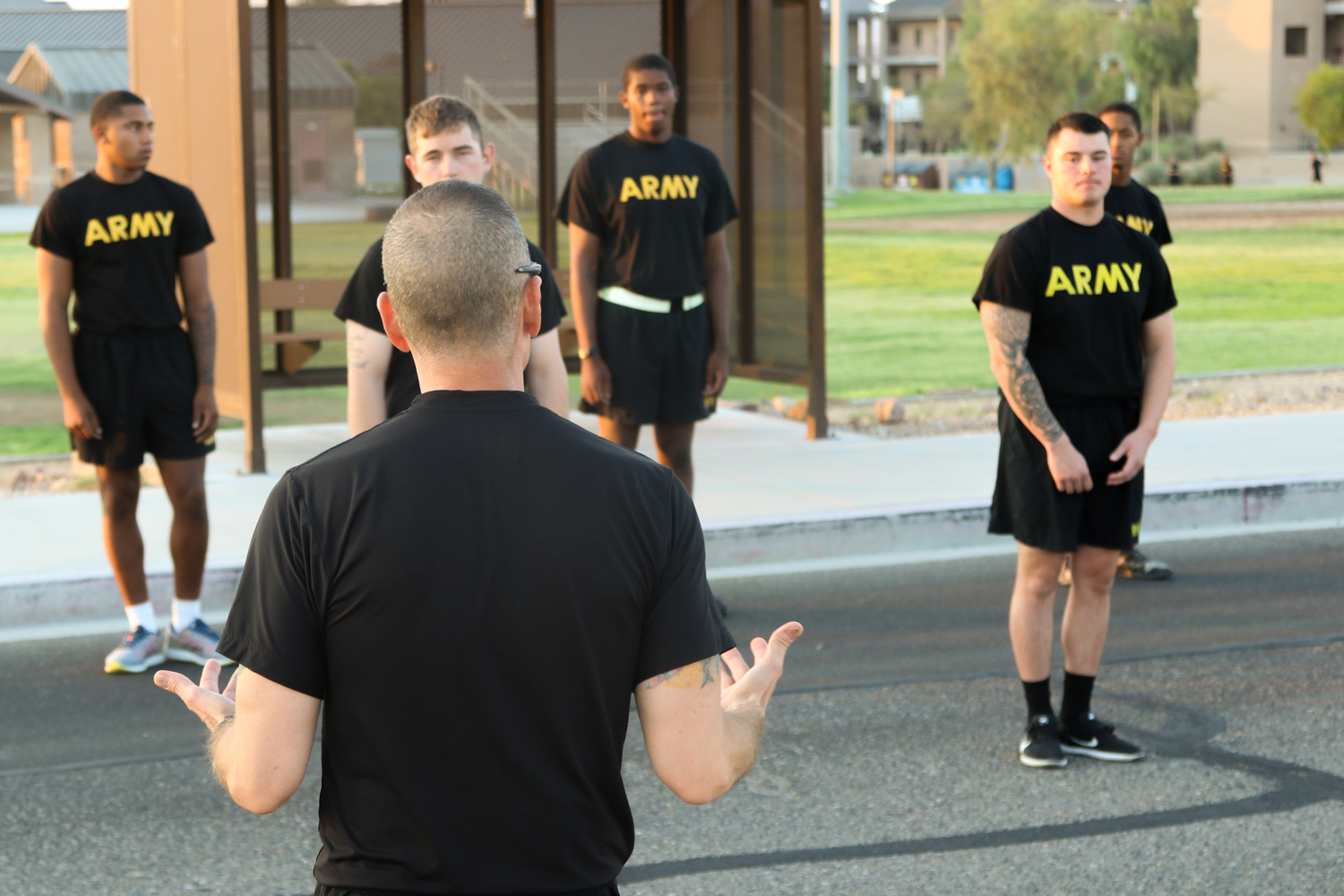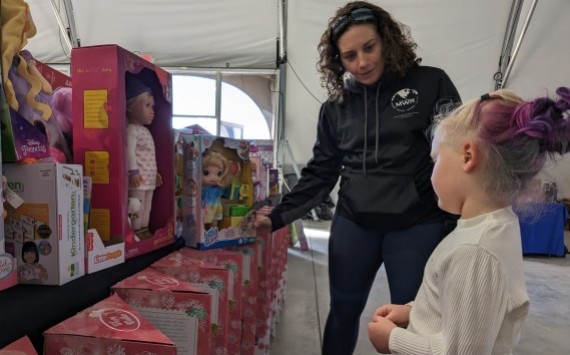FORT IRWIN, Calif. — The 11th Armored Cavalry Regiment has recently begun a Blackhorse Academy designed to allow all new Blackhorse Troopers to attend briefings that help share an understanding of the Blackhorse’s Mission in Fort Irwin, Calif. The Blackhorse assists with the integration of the Opposing Force (OPFOR) operations in support of the United States Army Forces Command (FORSCOM) Combat Training Center rotation.
During this academy, each Squadron sends newly reported troopers to participate in a group run to the Blackhorse Patch, which is placed on a mountain that looks over the installation, and numerous briefings including one from the 69th Regimental Commander and the 23rd Regimental Command Sgt. Maj.
The roughly four-mile patch run starts off the day as new troopers learn about Fort Irwin and the Blackhorse Footprints from a birds eye view. After completing personal hygiene and eating breakfast, the new Troopers gather together for briefings started off by the Regimental Commander and Command Sergeant Major. The briefing allows the Troopers to get facial recognition of the Command Team and hear about how important it is to continue the prestigious history of the 11th ACR. Following that briefing, the Troopers receive a safety lesson from the Regimental Safety Officer and briefings from all Regimental sections to give them an overview of the history, operational environment, task organizations, the OPFOR equipment and the first look at the rotational calendar that they will be working on over their time with Blackhorse. Troopers also get an understanding of what programs are available to them on the National Training Center, as well as contact information for resources that are available to them.
By the end of the academy, the Troopers that have participated will be knowledgeable about the capabilities and strength, and ready to head to their respective sections to continue on the fight during each training rotation. Surely, there will be plenty of hands-on experiences and opportunities to prove themselves as individual Troopers, but the ultimate goal is to make sure the Troopers coming in understanding the importance of the past, present, and future operations for which the Regiment will always answer the call.












